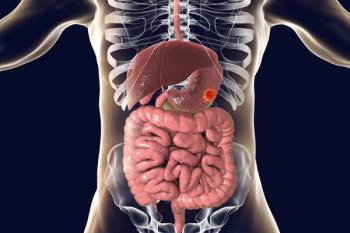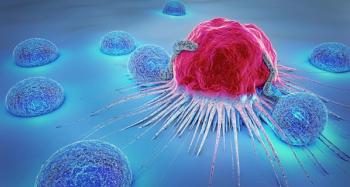
Treatment with ISB 2001 demonstrated robust responses across difficult-to-treat multiple myeloma subgroups in the phase 1 TRIgnite-1 study.

Your AI-Trained Oncology Knowledge Connection!


Treatment with ISB 2001 demonstrated robust responses across difficult-to-treat multiple myeloma subgroups in the phase 1 TRIgnite-1 study.


The addition of angiogenesis inhibition to immunochemotherapy for untreated extensive-stage small cell lung cancer did not significantly increase toxicity.

Longer follow-up from the phase 3 MIDAS trial may be necessary to evaluate progression-free survival and overall survival.

Results from the phase 1a/b trial evaluating ADRX-0405 in various solid tumors, including gastric cancer, are expected to come in late 2025.

Data from a phase 1 trial showed an ORR of 68% and a DCR of 93% with ZL-1310 in those with extensive-stage small cell lung cancer during dose escalation.

Subgroup data from BREAKWATER support cetuximab/encorafenib plus mFOLFOX6 as a new standard of care in BRAF V600E-mutated metastatic colorectal cancer.

The liposomal formulation of gemcitabine may enhance antitumor activity by increasing plasma half-life and improving targeted delivery to tumors.


Patient-reported satisfaction was higher in patients with breast cancer treated with olanzapine vs those who underwent treatment with placebo.

HAIC with oxaliplatin and raltitrexed produced a higher response rate vs other systemic therapy agents in patients with advanced hepatocellular carcinoma.

Survival benefit was observed in heavily pretreated populations, including those who progressed after checkpoint inhibition and antibody-drug conjugates.

Prior BCMA-DT exposure was associated with a trend toward worse PFS outcomes and a lower likelihood of response in patients with multiple myeloma.

ATR04-484 showed inhibition of both methicillin-sensitive and methicillin-resistant Staphylococcus aureus bacteria strains, which are associated with rash.

Current data support prospective studies comparing IDH triplet vs IDH doublet therapies among patients with IDH-mutant acute myeloid leukemia.


The phase 3 UTOPIA trial has enrolled a total of 99 patients with low-grade intermediate-risk NMIBC to receive UGN-103.

Phase 3 data affirm the use of partial-breast intensity-modulated radiotherapy as a standard of care in patients with low-risk early-stage breast cancer.

The Oncomine Dx Express Test may generate results in as little as 24 hours when used on the Ion Torrent Genexus Dx Integrated Sequencer.

Among 287 patients across multiple solid tumor indications, YL201 had an objective response rate of 40.8%, with a disease control rate of 83.6%.

SIR-Sphere Y-90 resin microspheres are the only approved radioembolization treatments in the US for both HCC and mCRC.

A group of clinicians gives study advice on how to best prepare for the medical oncology board examinations.

The CHALLENGE trial in CRC studied structured exercise and demonstrated a DFS benefit comparable to or exceeding oxaliplatin chemotherapy.

Updated guidelines from ASTRO recommend various radiation therapy techniques for patients with WHO grade 4 adult-type diffuse glioma.
![No tracer-related adverse effects were observed in the study, with [18F]AIF-NOTA-PCP2 showing acceptable dosimetry in patients with head and neck cancers.](https://cdn.sanity.io/images/0vv8moc6/cancernetwork/566910aff802a39d5d1afef401d33f429392d845-1200x886.jpg?w=350&fit=crop&auto=format)
No tracer-related adverse effects were observed in the study, with [18F]AIF-NOTA-PCP2 showing acceptable dosimetry in patients with head and neck cancers.

Confirmatory data may support zanidatamab as an advancement in the treatment of HER2-positive advanced gastroesophageal adenocarcinoma.

Findings from a WeCanWork study showed that men who work laborious jobs need additional support during and after cancer treatment.


According to Jorge Nieva, MD, there are a multitude of things that can be explored to enhance the treatment landscape for lung cancer.

The frequency and severity of adverse effects for the combination were consistent with expected safety findings for each individual agent.